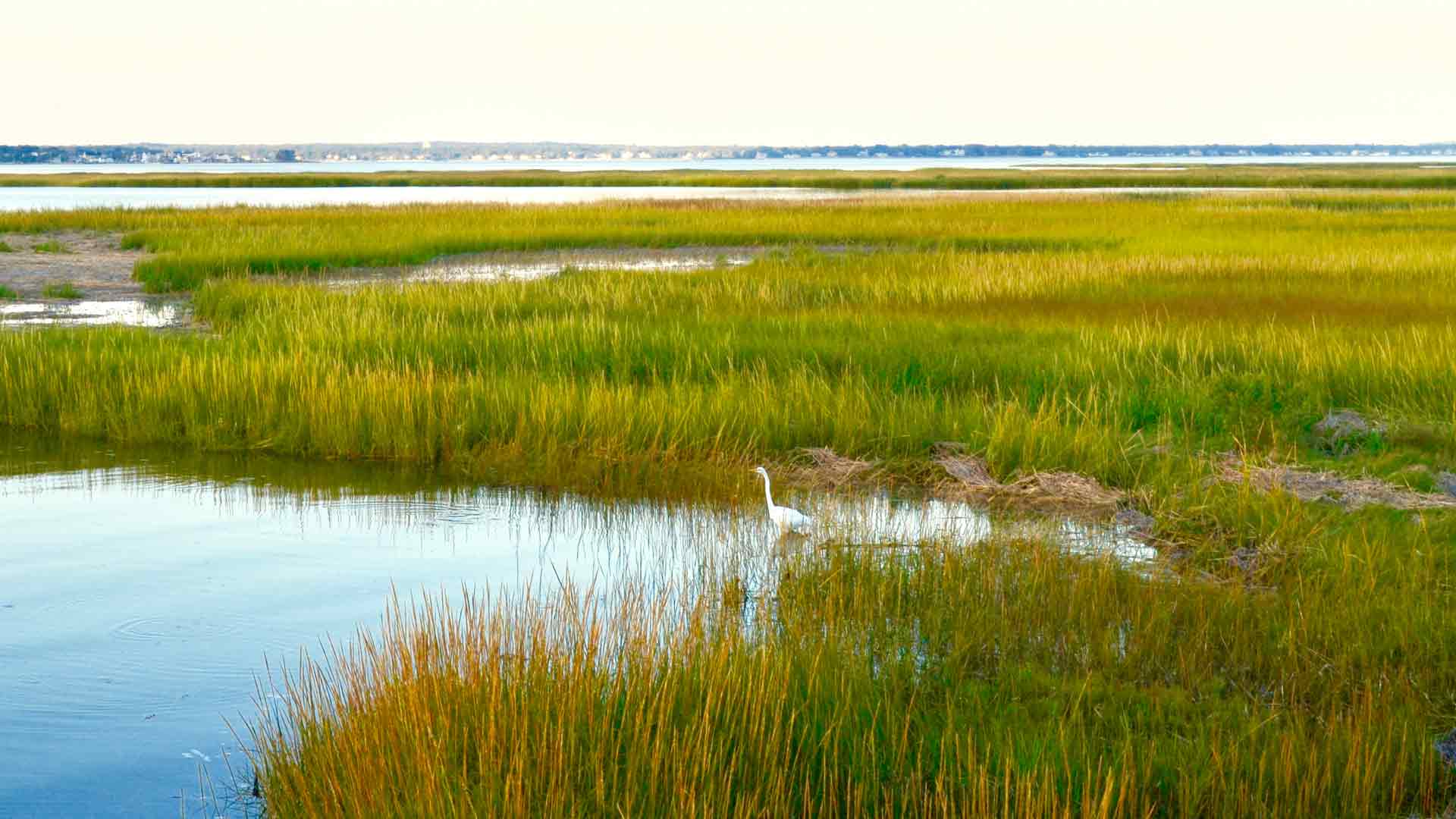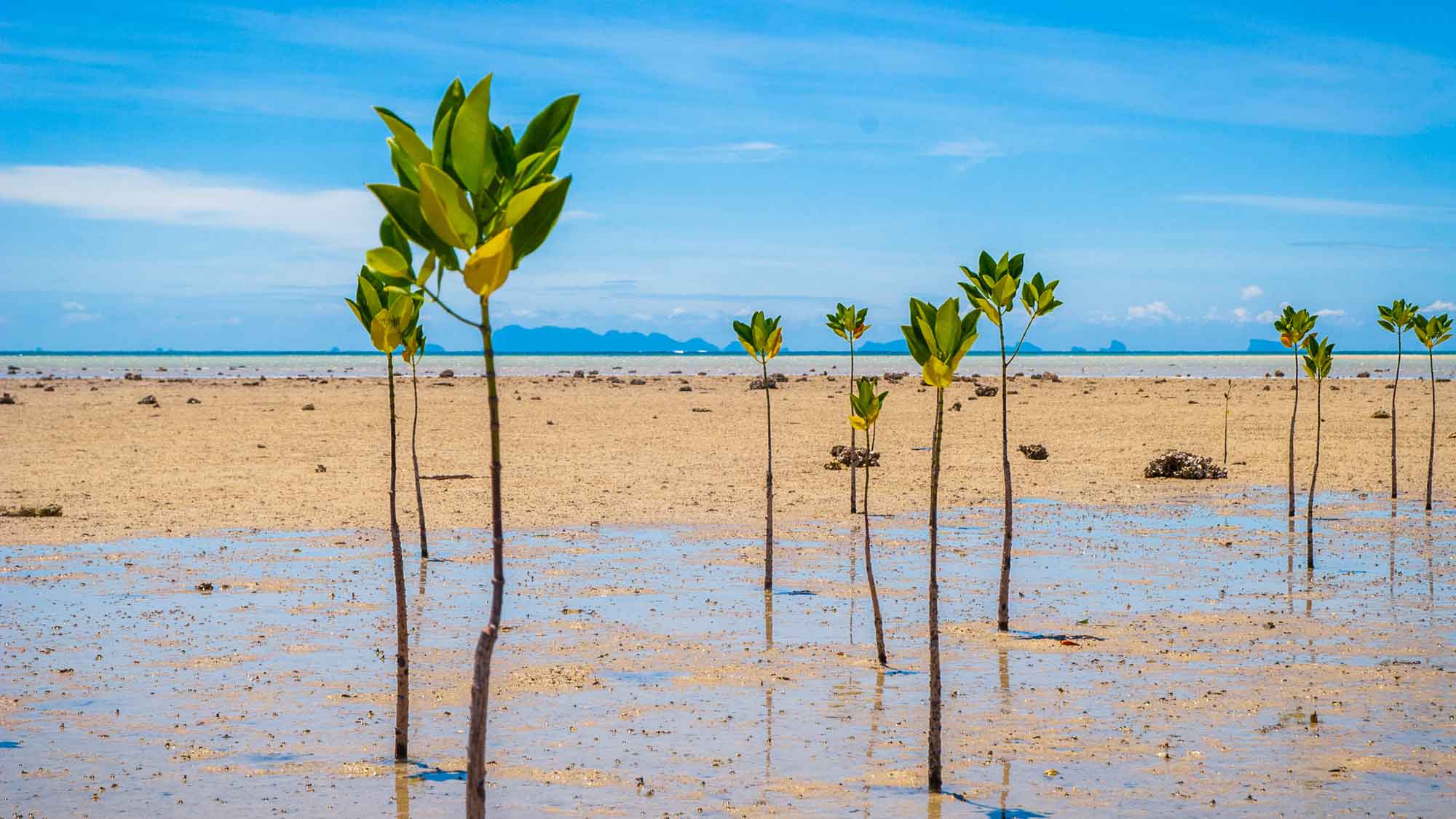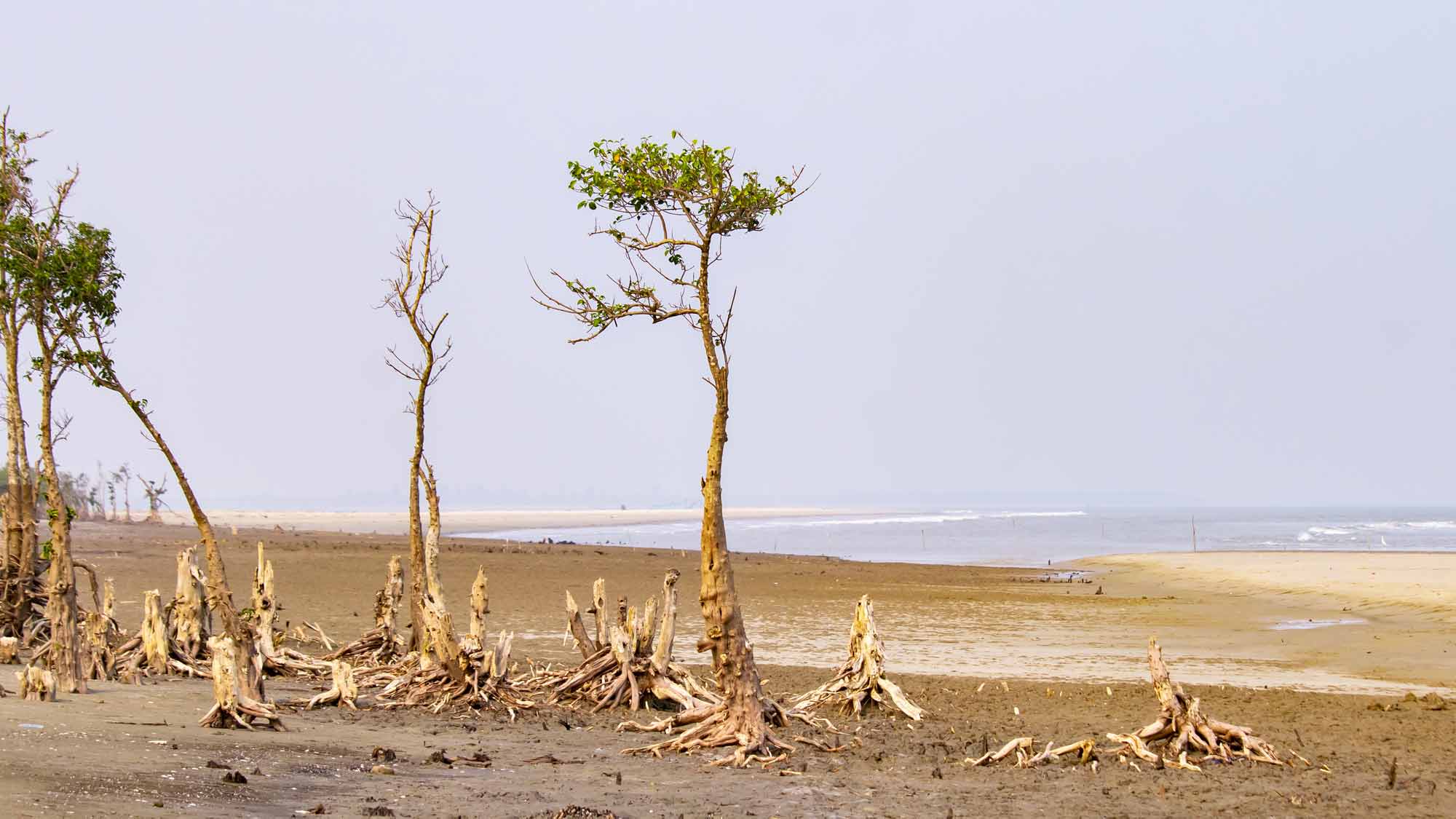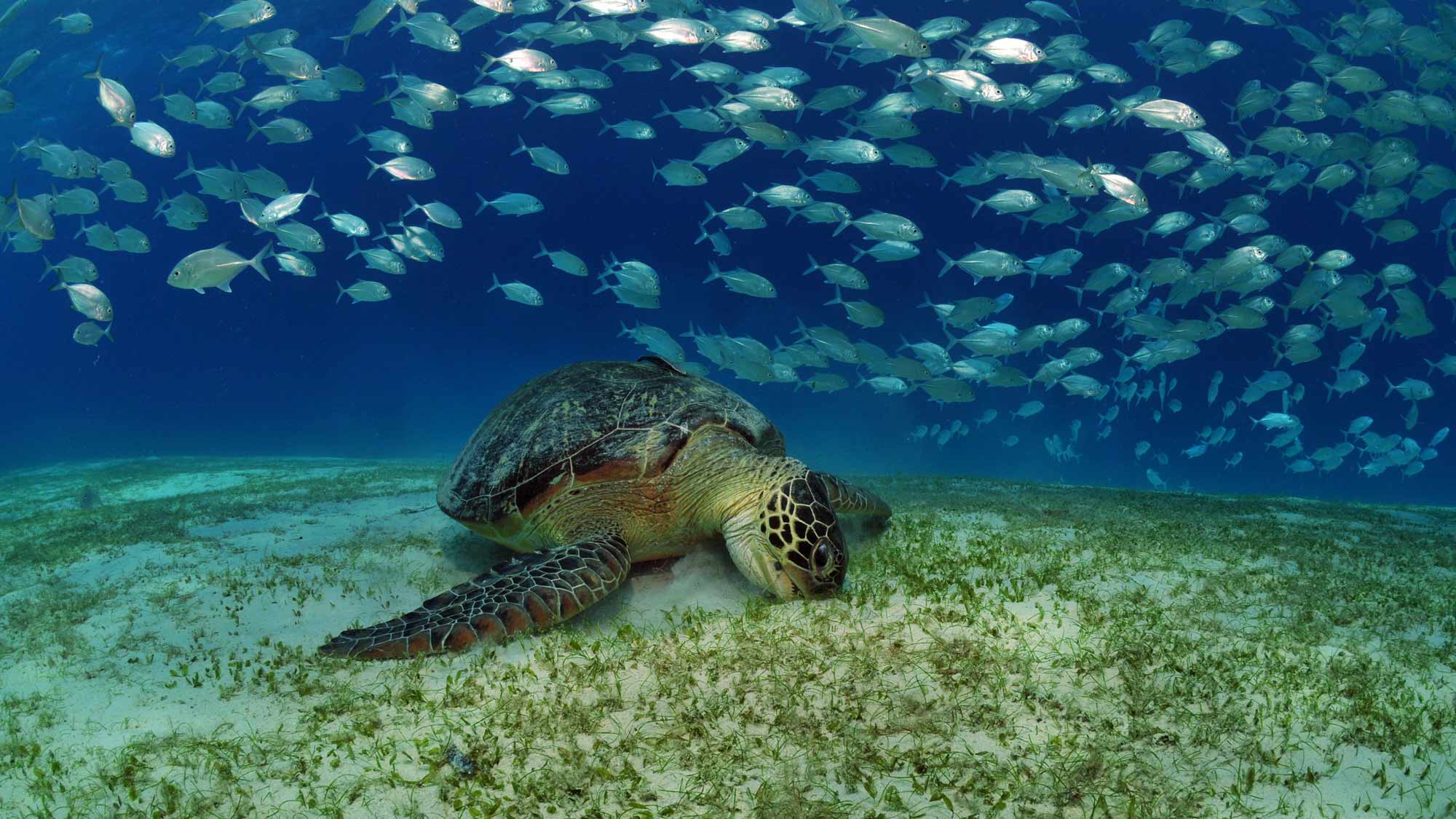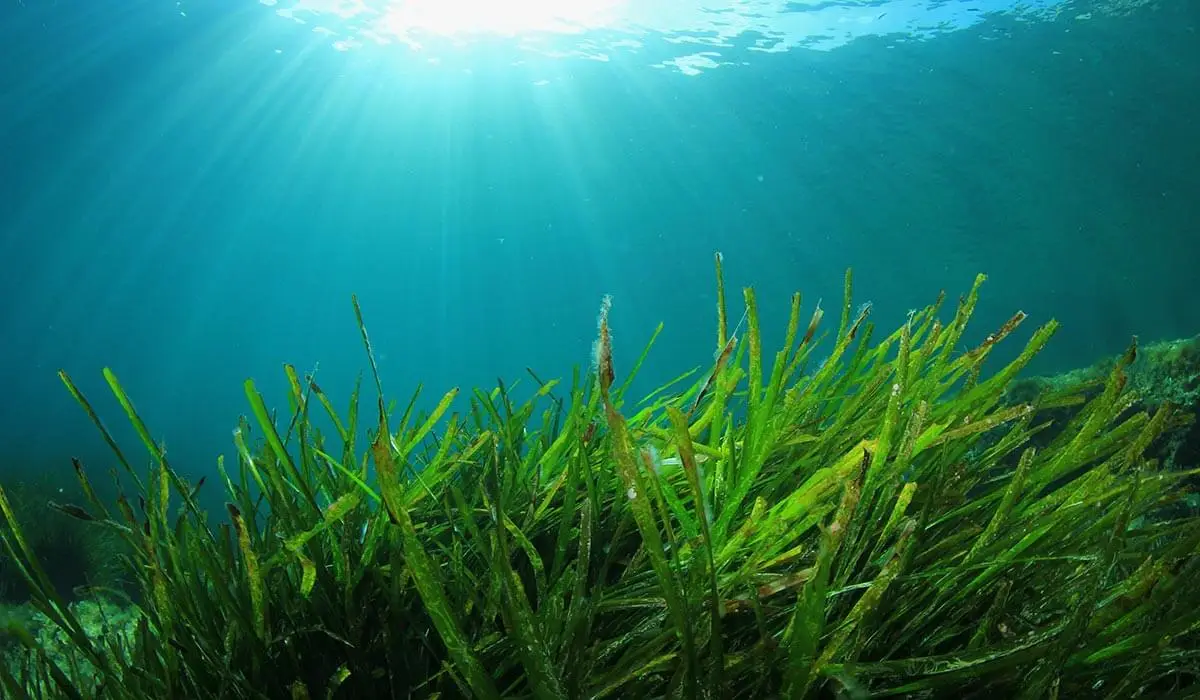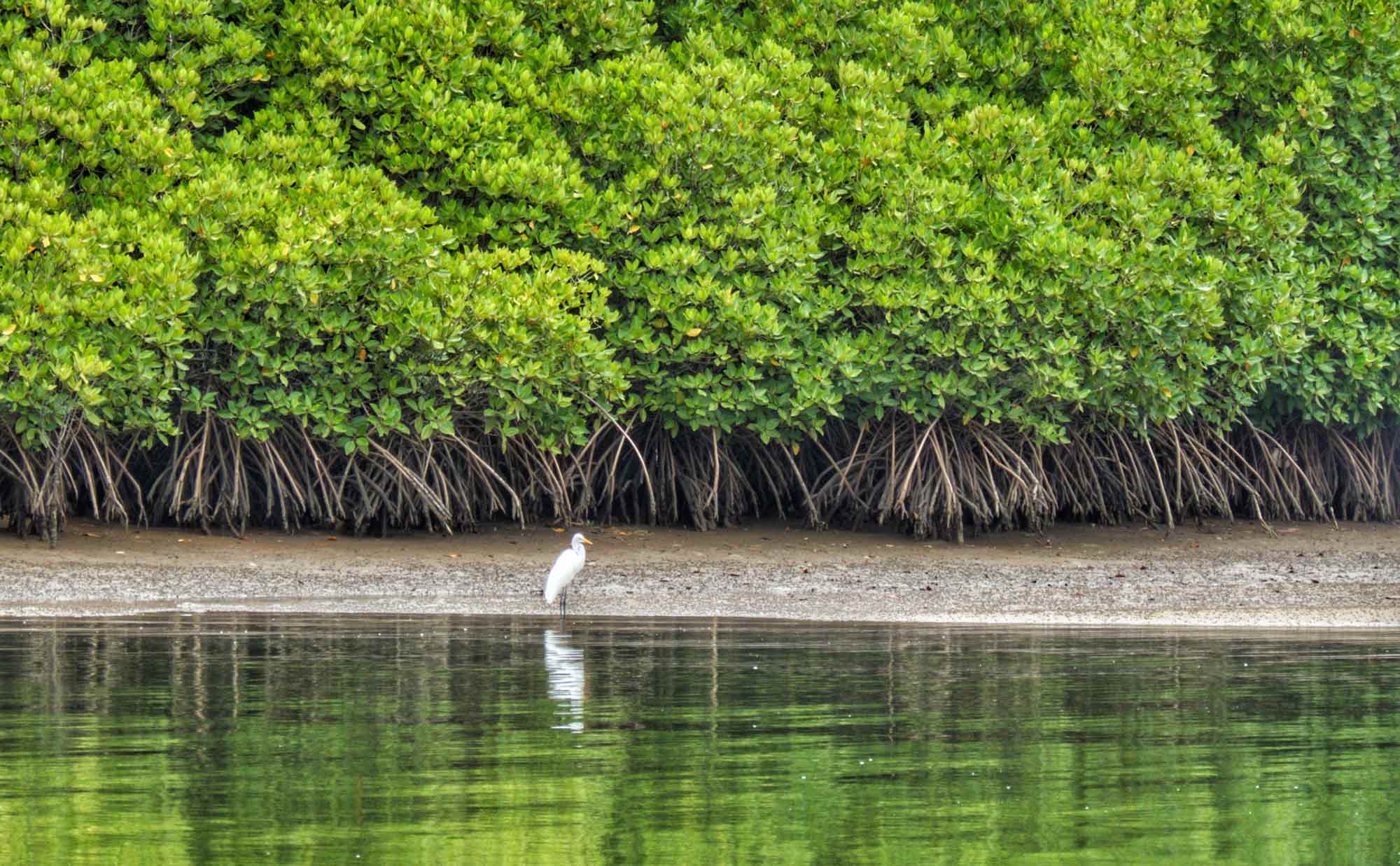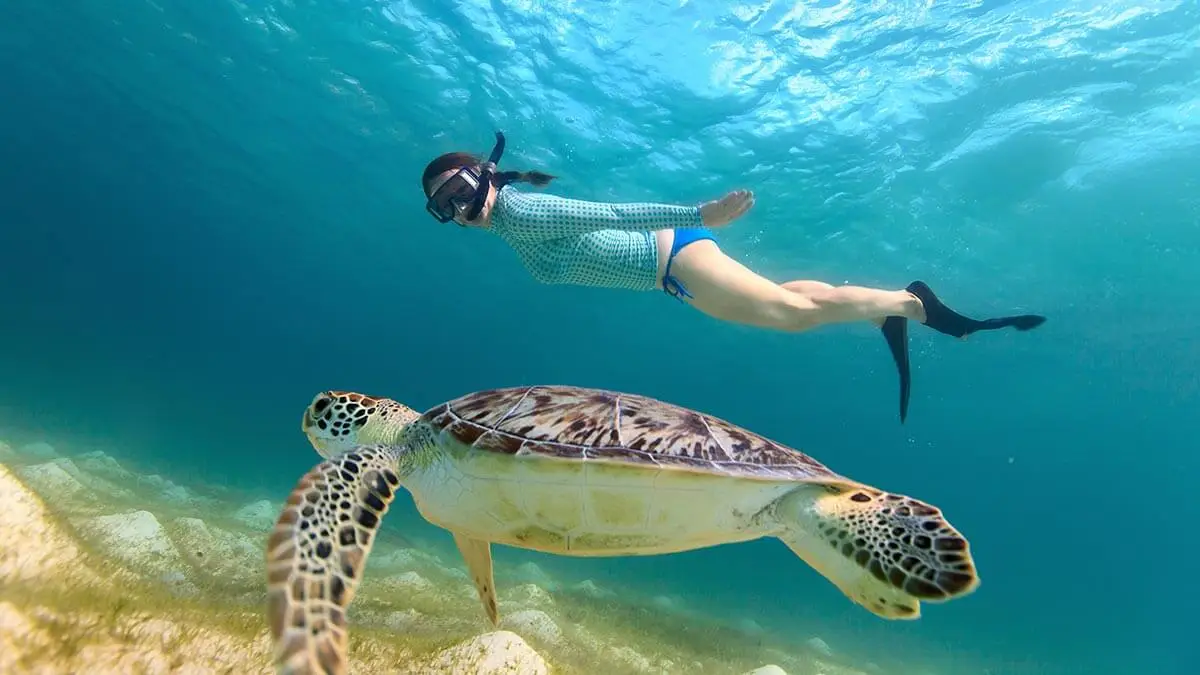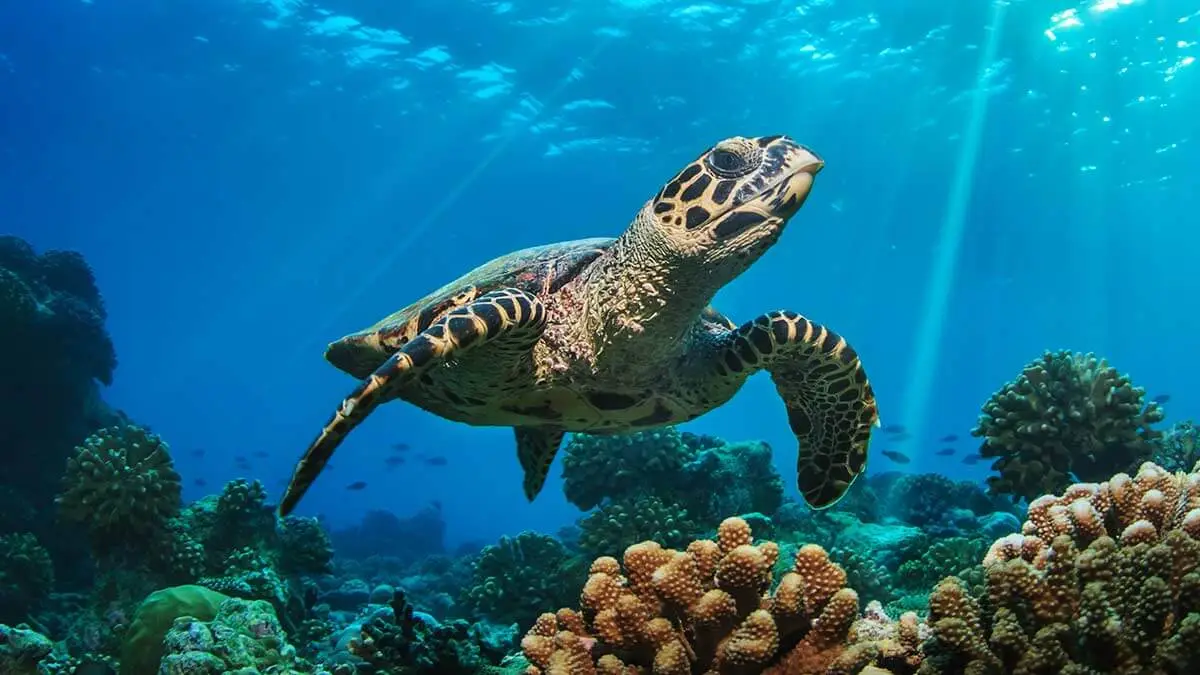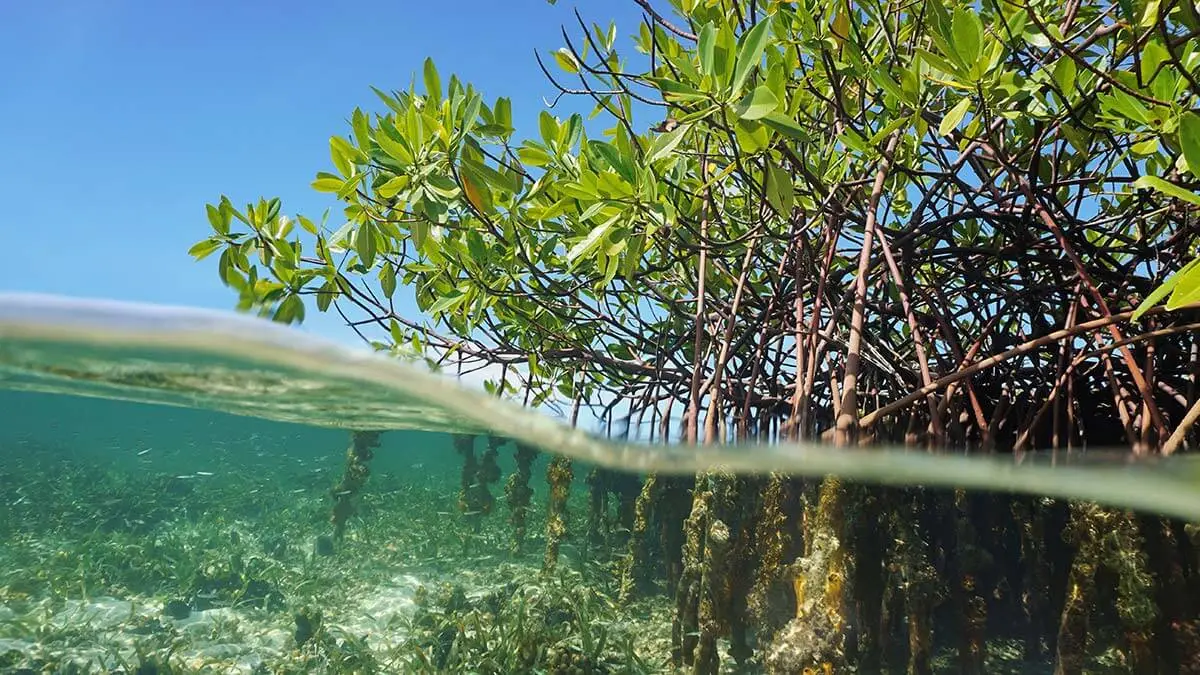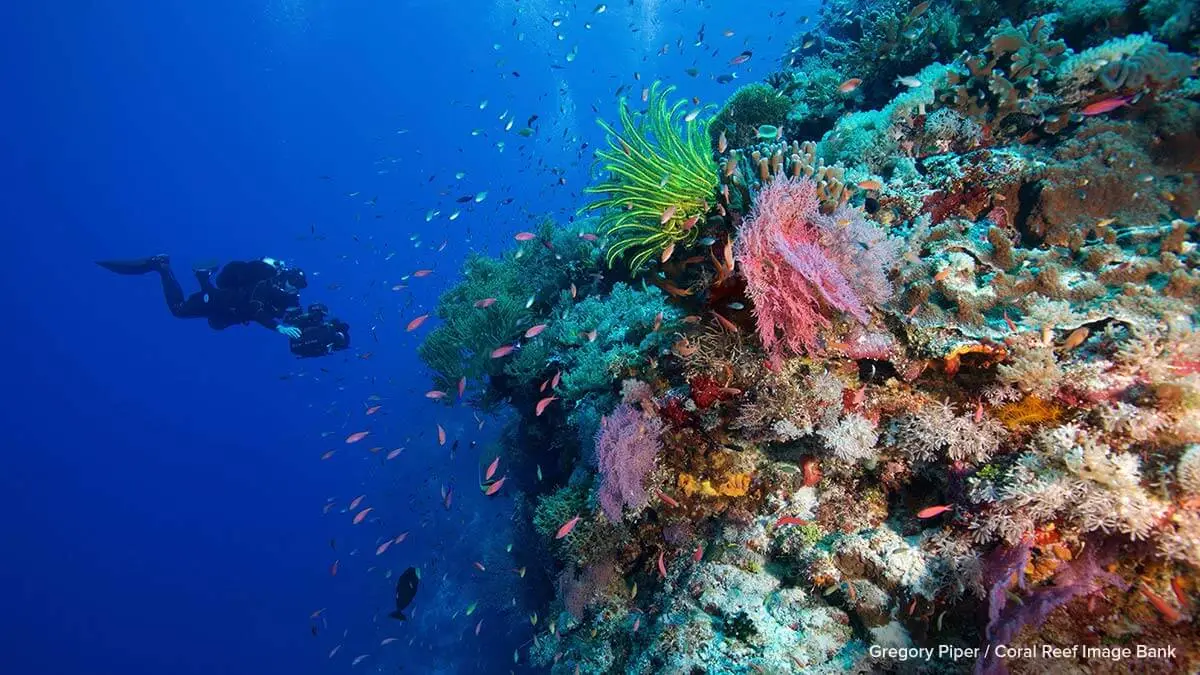PROTECTING OCEANS & REEFS
Ocean Conservation Through Tourism
Oceans and reefs are some of our planet’s most vibrant natural attractions. Some of the world’s most fascinating species – from humongous whales to tiny seahorses – call these waters home. In addition to harboring immense biodiversity, healthy oceans and reefs are an essential source of food and income for people around the world.
Marine tourism brings travelers face-to-face with this underwater beauty. The combination of spectacular marine life, delicious seafood, and diverse recreational opportunities draws visitors to even the most remote seaside destinations. While marine tourism creates valuable income for local communities, it can also pose a threat to underwater habitats and wildlife. Discover how to protect ocean ecosystems by making more responsible travel choices that safeguard the wealth they provide for nature and mankind.

Marine Tourism
A staggering 350 million people travel to the world’s coral reef coasts each year. There are countless ways that travelers can explore our planet’s oceans and reefs – from diving and snorkeling to sailing and surfing. The seas also provide delicious seafood which is enjoyed by tourists and locals alike.
While marine adventures excite and inspire, they also provide important benefits for local communities. Marine tourism supports local jobs, such as surf instructors and dive guides. It also generates visitor spending at nearby hotels, restaurants, and other establishments. Marine tourism fees can even subsidize conservation and help fund marine protected areas. All in all, coral reef tourism generates over $36 billion in economic revenue each year.
Why Oceans and Reefs Matter
While marine tourism brings people closer to the ocean, its importance goes beyond travel. Covering more than 70% of the Earth’s surface, the ocean is essential to life on our planet. It supports biodiversity, provides food and livelihoods, helps regulate the climate, and powers the blue economy.
Scientists estimate that 2 million species live in the ocean, less than 250,000 of which have been discovered.
Over 3 billion people rely on marine and coastal biodiversity for their livelihoods.
Coral reefs provide USD 10 trillion of economic value per year and 5-10 tons of fish per square kilometer.
Explore the Threats to Oceans
The fate of our oceans and reefs is in jeopardy. In just a decade, the world lost 14% of its coral reefs. Climate change has resulted in devastating impacts for marine ecosystems, while careless tourists, haphazard coastal development, and pollution threaten to accelerate the destruction of these critical marine habitats. Click below to learn more about the issues that we’re addressing to promote more sustainable marine tourism and advance ocean conservation.
How Climate Change Affects Oceans
Of all the threats facing ocean ecosystems, climate change is the most widespread and complex. The ocean has absorbed 90% of the warming from greenhouse gases, altering marine conditions. Warmer sea temperatures cause coral bleaching and are driving many marine species to cooler waters. As oceans absorb more carbon dioxide, they become more acidic. This acidity weakens corals and shell-forming organisms. Meanwhile, sea level rise and melting ice are altering ocean currents and habitats, and stronger storms are putting islands and coastal destinations at greater risk.
Protecting the ocean starts with addressing the climate crisis behind these changes. Tourism contributes to the problem through its carbon footprint. Travelers and tourism businesses can help by reducing emissions and supporting climate projects through travel carbon offsets, while also minimizing other stressors on already fragile reefs.

Data Source: International Coral Reef Initiative, 2025
99%
of the world’s coral reefs could disappear due to marine heatwaves if we don’t drastically cut emissions this decade.
Learn How Tourism Can Protect Ocean Ecosystems
Responsible tourism supports ocean conservation by respecting marine wildlife, reducing travel emissions, minimizing plastic use, ensuring proper waste management, and investing in conservation and climate action. Explore our tips and guides to learn how to protect ocean ecosystems during your travels.
Turn Knowledge Into Action
Take action to combat the threats endangering oceans, coral reefs, and marine destinations through responsible and regenerative tourism. Here are three easy ways to get started.
Take our Travel Better Pledge and get tips to reduce your impact on oceans and other ecosystems.
Support climate projects that reduce emissions and slow the global warming threatening coral reefs and marine destinations.
Get tools, training, and climate solutions to reduce your impact, while supporting our work to protect the destinations you visit.
Frequently Asked Questions
Explore answers to top questions about how tourism affects oceans and the steps you can take to conserve them.
What is marine tourism?
Marine tourism includes travel and recreational activities that take place in or around the ocean, such as scuba diving, snorkeling, sailing, surfing, paddling, whale watching, and motorized water sports.
What is ocean conservation?
Ocean conservation is the protection and restoration of marine environments and the wildlife that inhabit them. It involves improving the health of ocean ecosystems by reducing pollution, managing fisheries and tourism sustainably, restoring damaged habitats, and addressing climate change.
How does tourism depend on ocean and marine ecosystems?
Tourism relies on healthy oceans and marine ecosystems for experiences like diving on vibrant coral reefs, snorkeling among abundant fish, swimming in crystal-clear waters, and enjoying fresh local seafood. When reefs turn white from bleaching, fish disappear, or waters are filled with plastic, then the appeal of the destination drops, jobs are lost, and tourism-dependent economies suffer.
Stay Connected
Get our emails for more tips on how to protect our planet’s most vulnerable and treasured destinations.






